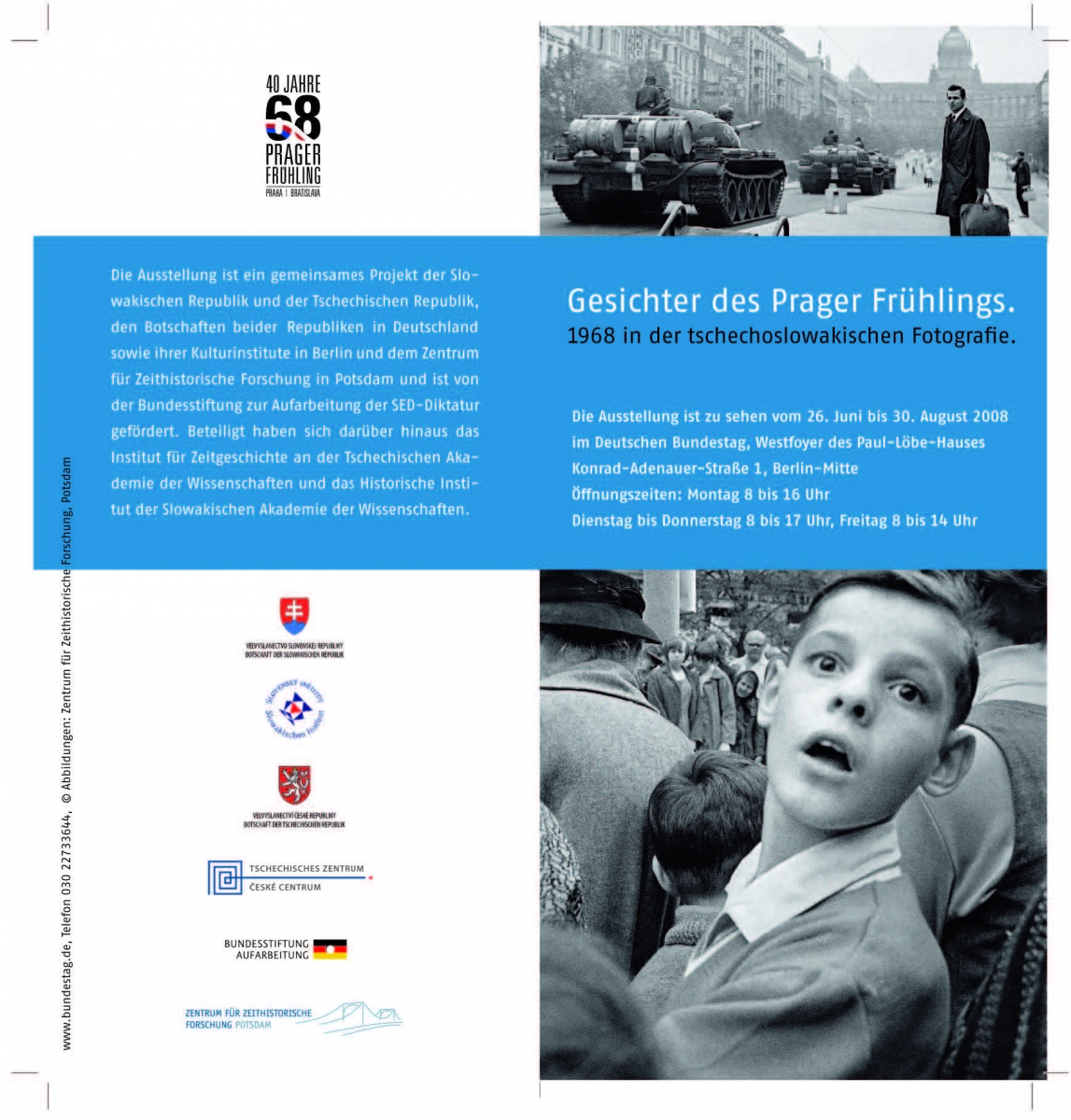Completed exhibition project of the Centre for Contemporary History, Potsdam, the Czech and Slovak Centre in Berlin and the Embassies of the Czech Republic and Slovakia in Germany
Exhibition venues:
26.06.–30.08.2008 | Deutscher Bundestag, Paul-Löbe-Haus, Berlin
04.–27.09.2008 | Bahnhofspassagen Potsdam
04.11.2008 –19.01.2009 | Foyer des Redaktionsgebäudes der F.A.Z., Frankfurt am Main
15.11.2018–29. März 2019 | Zentrum für Zeithistorische Forschung Potsdam, Bibliothek
Concept and realisation:
Jürgen Danyel, Jennifer Schevardo and Dana Kyndrová
In 1968, reformers around Alexander Dubček tried to give socialism in Czechoslovakia a ‘human face’ and initiated a far-reaching process of democratisation. This process was driven by Czech society as a whole and created hope for change across the Eastern bloc. The invasion of the armies of the Warsaw Pact on 21 August 1968 put a violent end to this development.
The images of the Prague Spring and its suppression cannot be disconnected from the European memory of 1968. Numerous photographs have become icons of the history of photography. This photo exhibition showed the many faces of the political, societal and cultural change in Czechoslovakia in 1968 and looked at the pre-history and the protagonists. It conveyed a visual impression of the atmosphere of confidence and hope that prevailed within the Czechoslovak population.
The memory of the Prague Spring has strongly been shaped by the images of the invasion of the Warsaw Pact armies on 21 August 1968 and the protests of the Czechoslovak population. Under the conditions of occupation, these photographs often found their way abroad via circuitous routes and became impressive testimonies of the violent termination of the Czechoslovak experiment.
The exhibition showed selected works of a great number of Czech and Slovak photographers, among them Vladimir Lammer, Dagmar Hochová-Reihardtová, Daniela Sýkorová, Jan Bartůšek, Miroslav Hucek, Václav Toužimský, Pavol Breier and Tibor Borský, who accompanied the social change and the cultural transformation in Czechoslovakia during the second half of the 1960s and also took pictures after the invasion on 21 August 1968. In addition to the works of these photographers, the exhibition provided an overview of the course of the Prague Spring, its suppression and its significance in the history of European democratic movements.
The exhibition was a joint project of Slovakia, the Czech Republic, the embassies of both states in Germany as well as their cultural institutes in Berlin and the Centre for Contemporary History in Potsdam. It was funded by the Federal Foundation for the Study of Communist Dictatorship in East Germany. Furthermore, the Institute of Contemporary History of the Czech Academy of Sciences and the Institute of History of the Slovak Academy of Sciences participated.

